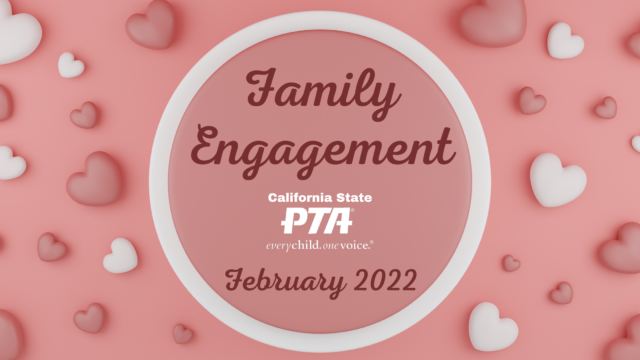
By: Family Engagement Commission
There are many people on a school campus that families should become acquainted with — one key person is the school counselor. The week of February 7th is National School Counseling Week. To help families understand more about the counselor’s role, commissioners from the California State PTA Family Engagement Commission (FEC) reached out to Kimberly Goller, a counselor at Canyon High School in William S. Hart Union High School District for her thoughts.
FEC: Tell us a little bit about your journey to counseling.
Goller: I began as a junior high and high school teacher, teaching history, reading, Japanese, and Sign Language. Our district was opening a new school to help students who hadn’t been promoted after four years and I was so intrigued. Turns out I was the only teacher in the district who applied, so I got the job. As I was teaching there I came across a lot of kids who had serious life issues and we had no counselor to support them at our site. One day I was helping a student who had been raped —as I was helping her get the services she needed for her mental and physical health I realized that that’s what I wanted to do full-time. I went back to school to get my Masters in Counseling and have worked as a counselor in both junior high and high school ever since. I have been here at Canyon High School for thirteen years.
FEC: How is counseling different at the high school, junior high, or elementary school levels?
Goller: Iin elementary school there are a few counselors for the entire district. They focus mainly on group counseling for things like grief and divorce, and they do very little individual work with students. However since the pandemic, funding for social emotional health of students has increased, so I’m hoping this will change.
At the junior high and high school levels we focus more on academics with our students — helping them to be successful in their courses. In our district, the junior high school counselors do class presentations on things like college and career preparation, in addition to some group work with students. In high school we are mainly working one to one with students to help them remove barriers so they are successful in high school and beyond.
FEC: What are some ways that families can connect with their counselor?
Goller: First of all, children should be encouraged to get to know their counselor. We can be a great resource for them, and we love it when they come to check in.
In secondary schools (middle and high school), we do talk about students self-advocating and reaching out to us directly when they are in need of help— however, if your child is in need of assistance and they aren’t reaching out—we hope that parents feel that they can reach out to us as well. Sometimes parents assume that teachers are sharing information with counselors, but that isn’t always the case — so please keep your child’s counselor up-to-date if they are missing school for extended periods or if they need any kind of social, emotional, or academic support.
We want to be proactive with our students, but often we find ourselves in reactive mode since we were late to get involved. Our counseling offices are also judgment-free zones —we know that parenting is hard (especially for high school-aged kids). If you reach out to us to ask for support, we are not judging your parenting —we simply want to help.
FEC: What’s the best part of being a school counselor?
Goller: THE KIDS!!!! Without question, the best part of my job is getting to know the kids. Before I leave every day I write four summons so I know I will get to see at least four kids the next day. I only have four years with your child, so I’m going to do everything I can to move the blocks out of their way to make their future brighter.
Use National School Counselor Week as an opportunity to begin a dialog with your child’s counselor —it might just make their day!